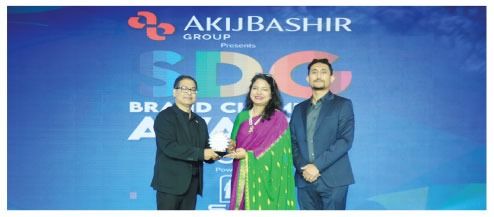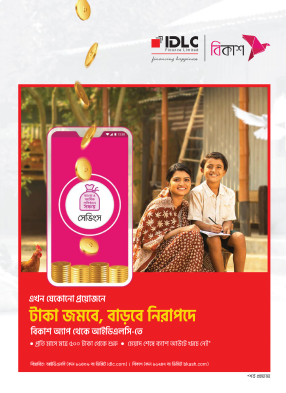- info@ficci.org.bd
- |
- +880248814801, +880248814802
- Contact Us
- |
- Become a Member
- |
- |
- |
- |
- |
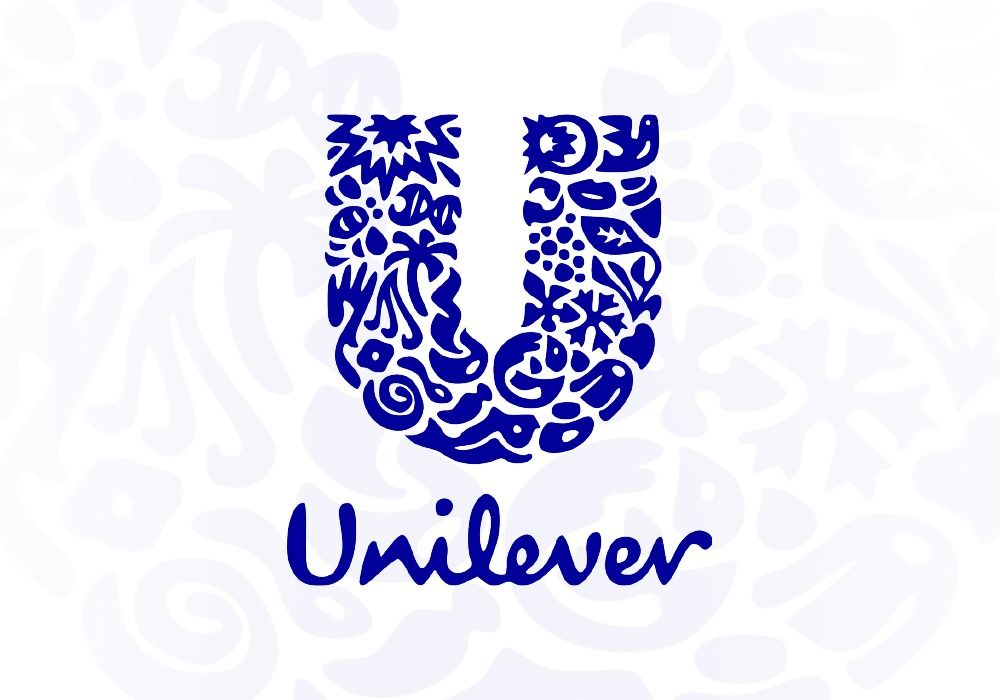
Unilever Bangladesh Limited (UBL) has been recognised as The Most Sustainable Company of the Year' and the 'Most Sustainable FMCG of the Year' at the SDG Brand Champion Awards 2025 - a recognition that reaffirms its unwavering commitment to building a better, more inclusive, and sustainable Bangladesh for all. The company also received the highest number of awards for the second year in a row, winning in five additional categories for its impact driven initiatives aligned with the United Nations Sustainable Development Goals (SDGs).
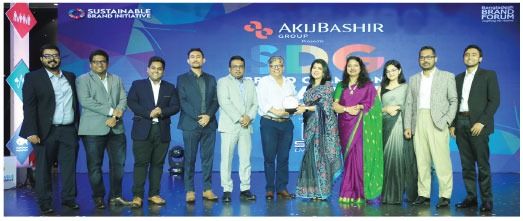
As one of the largest consumer goods companies, Unilever is globally known for purpose-led and integrated sustainability approach at the core of the business since 2010. Aligned with its global purpose, UBL has been driving a robust sustainability agenda focusing on four pillars: Climate Nature, Plastic, Livelihood. Over the years, the organisation has contributed to 13 out of the 17 SDGs, positively impacting the lives of approximately 120 million people across the country.
Driving Impact Across Communities
From being one of the pioneers of responsible and sustainable manufacturing in Bangladesh, addressing sanitation gaps, to enhancing youth engagement, and working with informal sectors to support waste workers, UBL was recognised across a spectrum of categories for its holistic and transparent approach for driving ambitious sustainability goals:
·Sustainable Partnerships and Institutions: Domex and Bhumijo's Fight Against Poor Sanitation
Domex, one of Unilever's home care brands, in partnership with Bhumijo are on a mission to create safer and hygienic public toilets for commuters-especially women-as Urinary Tract Infection (UTIs) and related health issues rise due to lack of safe sanitation. With over 40 smart WASH centres across Dhaka, Khulna, Narayanganj, and Benapole, the initiative has already served 4.5 million users, including 750,000 women and persons with disabilities. By offering not just clean toilets, but also showers, drinking water, and laundry services through tech-enabled pay-per-use and subscription models, Domex and Bhumijo are redefining the public toilet experience-turning a daily struggle into a dignified, accessible service for all.
·Sustainable Community: Empowering the Youth in Volunteerism
UBL is activating youth as changemakers across environment, entrepreneurship, and social impact. In 2024 alone, the initiative mobilised 500+ volunteers, reached 100+ campuses, and trained 41 youth journalists in environmental reporting. Programmes like ULIP, Spark, BizMaestros, and Youth Journalism. Fellowship offered real-world leadership, while partnerships with UNYSAB, Kewkradong Bangladesh, Orange Corners, and BD100 helped scale impact across urban and underserved areas. With 1 million+ people reached in a year, the initiative proves that when youth are empowered with skills, purpose, and platforms-they lead sustainable change from the frontlines.
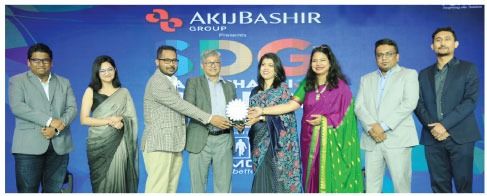
· Decent Work and Economic Growth: Waste Workers' Livelihood Enhancement in Chattogram
Across the country, thousands of informal waste workers face unsafe working conditions, social stigma, and no access to financial or health protection. To address this, UBL launched the Waste Worker Livelihood Enhancement Initiative in Chattogram, under their plastic waste management project- transforming livelihoods through training, safety gear, and financial inclusion. Spanning all 41 city wards, the initiative empowered over 12,000 individuals including 3,000 waste workers, ensured 100% digital payments, and introduced Bangladesh's first corporate-funded health insurance for waste workers, already covering more than 1,800 individuals. With 92% reporting income growth and 91% now using PPE, the model redefined waste work as dignified, secure, and economically sustainable - contributing towards creating a socially just circular economy.
·Responsible Consumption and Production (Honourable Mention): Responsible Sourcing for a Greener Tomorrow
Unilever Bangladesh is redefining consumption by embedding sustainability into sourcing, packaging, and product innovation, reducing the pressure on planetary resources. In 2024, it sourced 100% NDPE-compliant palm oil and FSC-certified paper, safeguarding forest areas equal to 14% of the Sundarbans. Through reengineering product packaging, they reduced 1,700 tonnes of virgin plastic, saving 5,950 tonnes of CO2, while transitioning some packs to different types of plastics for better recyclability, and piloting a breakthrough innovation with a refill machine to drive behaviour change. By aligning with suppliers, regulators, and consumers, UBL is making strides in responsible consumption and production.
